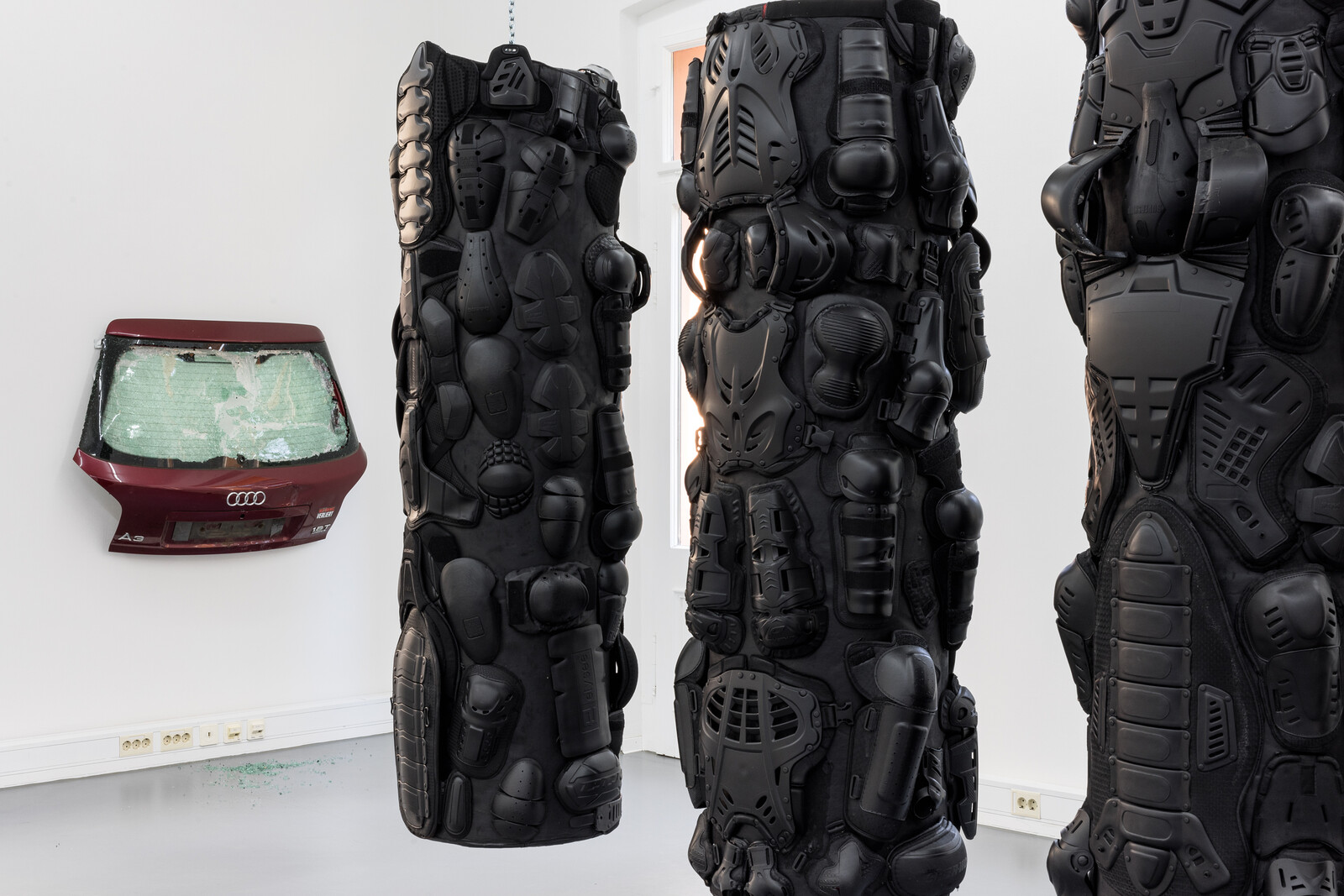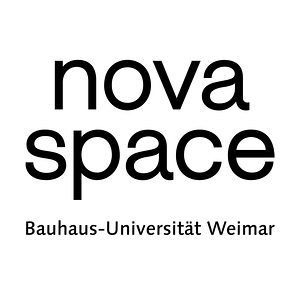August 23–October 25, 2024
University Gallery of the Bauhaus-Universität Weimar
Berkaer Strasse 11
99423 Weimar
Germany
Artists: Zuzanna Czebatul, Antonia Mang, Eric Meier, Christian Andrés Parra Sánchez, Thái Tài Pham, Rebecca Rothenborg, Shelly Silver, Rio Usui, Karla Zipfel.
The exhibition Wo ist der Morgen, den wir gestern sahen? (Where is the tomorrow we saw yesterday?) explores in-between spaces, shades of grey or the possibility of a vacuum; with snapshots and scenarios of when systems threaten to collapse within these. In filmic, performative and sculptural contributions by students and teachers of the Bauhaus-Universität Weimar as well as external artistic positions, these limbo-like conditions are reflected materially and conceptually: in ruinous architectures, porous structures, fusion points and suspended moments. In doing so, the polyphonic perspectives of a young generation become visible, raising questions about democracy, the development of “Western” and “Eastern” European similarities and differences, the consequences of reunification and social dissonances of the past, present and future.
The starting point of the exhibition is Shelly Silver’s 1994 documentary film Former East/Former West, in which the US-American interviews former East and West Germans about their attitudes, behaviour and hopes regarding democracy, reunification and the future. The film, as a testimony to the time, opens up approaches for reflection on the current political climate. The quote “Wo ist der Morgen, den wir gestern sahen?” (“Where is the tomorrow we saw yesterday?”) is taken from a lyrical piece by Heiner Müller from 1975, which Alexander Kluge recontextualises in his extensive publication Das Jahr 1990 freilegen (2020). In doing so, he gives Müller‘s rather gloomy perspective a glimmer of hope. Currently, parts of society are experiencing dwindling trust in democratic institutions, a shift away from liberal values and polarised debate that impacts perception of yesterday, today and tomorrow. The artistic contributions are catalysts for critical thinking. They raise major questions as on how regressive tendencies and social disagreements can be overcome. They can act as democratic tools, that demand and promote a polyphonic resonance instead of nipping it in the bud.
Curator: Sophia Scherer / Text: Hải Nam Nguyễn, Sophia Scherer / nova space Team: Helena Boldt, Annika Schallenberg, Benedict Thiele, Rio Usui / Copy-Editing GER/EN: Theresa Dettinger / Sarah Crowe / Technical Support: Denise Blickhan / Graphic Design: Adrian Palko / Photos: Jannis Uffrecht
Opening hours: September 9–October 11, 2024, Thursdays–Fridays: 12am–6pm / October 14–October 25, 2024, Monday–Friday: 12am–6pm.
Public program
October 14, 2024, 5:30–6:30pm
Mirror, mirror on the wall, who’s the fairest of them all? participatory performance by Belçim Yavuz. Location: nova space, Berkaer Straße 11, Weimar.
October 15, 2024, 7:30pm
Blickdichte Vorgänge performance by Kaya Leonie Pilsner. Location: Bauhaus-University Weimar, Oberlichtsaal 213, Geschwister-Scholl-Straße 8a, Weimar.
October 17, 2024, 7:30–9pm
When the sky falls, use it as a blanket film screening & talk with Thái Tài Pham, Thị Mai Trang Võ and Nadja Ißler, Hải Anh Triệu, moderated by Phuong Thủy Nguyễn. Location: Bauhaus-University Weimar, Cinema, room 112, Steubenstraße 6, Weimar.





















